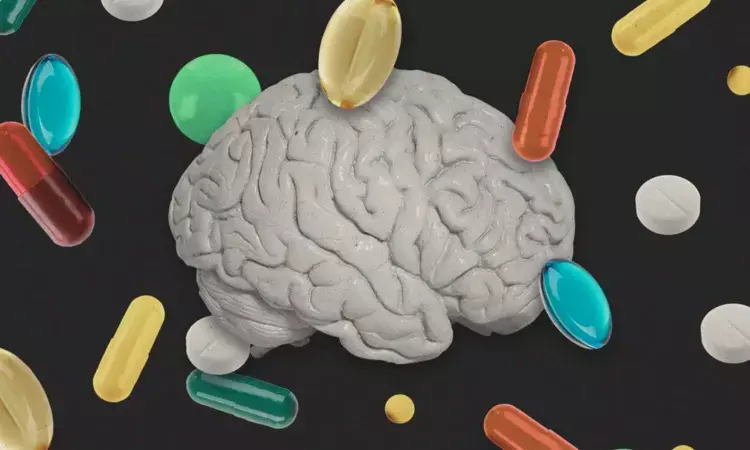- Home
- Medical news & Guidelines
- Anesthesiology
- Cardiology and CTVS
- Critical Care
- Dentistry
- Dermatology
- Diabetes and Endocrinology
- ENT
- Gastroenterology
- Medicine
- Nephrology
- Neurology
- Obstretics-Gynaecology
- Oncology
- Ophthalmology
- Orthopaedics
- Pediatrics-Neonatology
- Psychiatry
- Pulmonology
- Radiology
- Surgery
- Urology
- Laboratory Medicine
- Diet
- Nursing
- Paramedical
- Physiotherapy
- Health news
- Fact Check
- Bone Health Fact Check
- Brain Health Fact Check
- Cancer Related Fact Check
- Child Care Fact Check
- Dental and oral health fact check
- Diabetes and metabolic health fact check
- Diet and Nutrition Fact Check
- Eye and ENT Care Fact Check
- Fitness fact check
- Gut health fact check
- Heart health fact check
- Kidney health fact check
- Medical education fact check
- Men's health fact check
- Respiratory fact check
- Skin and hair care fact check
- Vaccine and Immunization fact check
- Women's health fact check
- AYUSH
- State News
- Andaman and Nicobar Islands
- Andhra Pradesh
- Arunachal Pradesh
- Assam
- Bihar
- Chandigarh
- Chattisgarh
- Dadra and Nagar Haveli
- Daman and Diu
- Delhi
- Goa
- Gujarat
- Haryana
- Himachal Pradesh
- Jammu & Kashmir
- Jharkhand
- Karnataka
- Kerala
- Ladakh
- Lakshadweep
- Madhya Pradesh
- Maharashtra
- Manipur
- Meghalaya
- Mizoram
- Nagaland
- Odisha
- Puducherry
- Punjab
- Rajasthan
- Sikkim
- Tamil Nadu
- Telangana
- Tripura
- Uttar Pradesh
- Uttrakhand
- West Bengal
- Medical Education
- Industry
GLP-1 Receptor Agonists Improve Metabolic Outcomes in Schizophrenia Patients on Antipsychotics: JAMA

Denmark: Researchers have found in a new randomized HISTORI trial that schizophrenia patients on antipsychotics experienced greater weight loss and HbA1c reduction with 1 mg semaglutide compared to placebo. This suggests GLP-1 receptor agonists may improve metabolic health in this high-risk group, who face elevated diabetes and cardiovascular mortality and are often excluded from prior GLP-1 trials.
- Semaglutide lowered HbA1c by 0.46% of total hemoglobin compared to placebo.
- 81% of patients receiving semaglutide achieved HbA1c levels below 5.7%, versus 19% in the placebo group.
- Average body weight dropped by 9.21 kg in the semaglutide group, while placebo patients showed minimal change.
- Lipid profiles improved, with HDL cholesterol increasing by 10.81 mg/dL and triglycerides decreasing by 29.20 mg/dL.
- Physical quality of life improved by 3.75 points, though no significant changes were seen in mental quality of life or schizophrenia symptom severity.
- Psychiatric outcomes remained stable, addressing concerns about GLP-1 therapies negatively affecting mental health.
- Gastrointestinal side effects were the most common adverse events in the semaglutide group.
- A slightly higher number of hospitalizations occurred with semaglutide, but serious adverse event rates were similar to placebo.
Dr Kamal Kant Kohli-MBBS, DTCD- a chest specialist with more than 30 years of practice and a flair for writing clinical articles, Dr Kamal Kant Kohli joined Medical Dialogues as a Chief Editor of Medical News. Besides writing articles, as an editor, he proofreads and verifies all the medical content published on Medical Dialogues including those coming from journals, studies,medical conferences,guidelines etc. Email: drkohli@medicaldialogues.in. Contact no. 011-43720751


